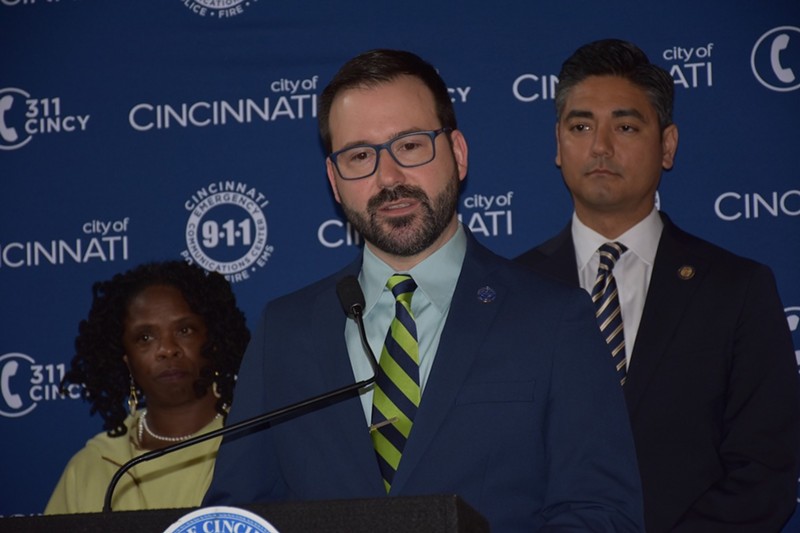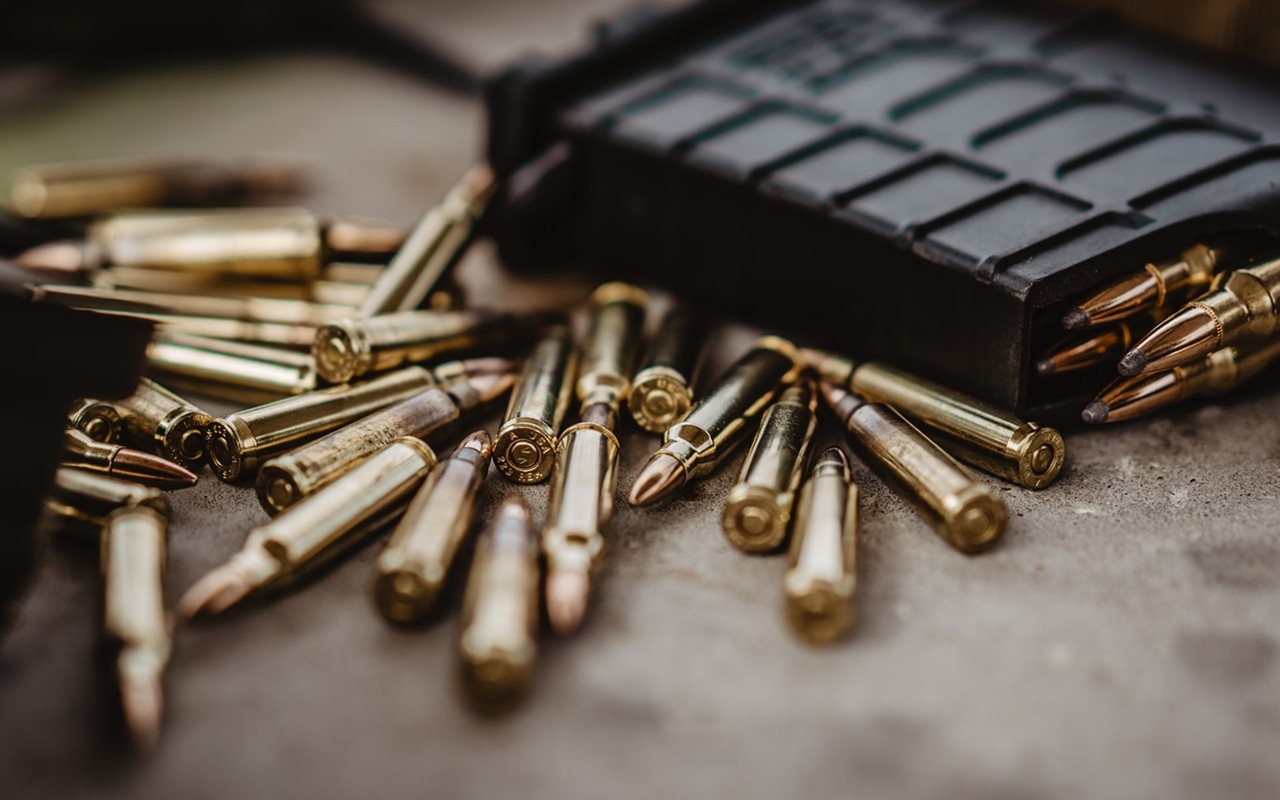
Photo: facebook.com/cityofcincy
Bill Vedra, director of Cincinnati's Emergency Communications Center, explains a new pilot program that could better address non-violent 911 calls.
If you call 911 in Cincinnati, it may not be a police officer who comes to check on you.
On May 5, just after Mental Health Awareness Month began, city officials announced a pilot program that would send mental health professionals instead of police for some non-violent, low-risk calls. If the city's Emergency Communications Center determines that police are not required for a situation, a licensed behavioral health clinician and a paramedic will respond as a team, officials said.
The licensed behavioral health clinician — who will be provided by the Cincinnati Health Department — and the paramedic — who will come from the Cincinnati Fire Department — will respond to issues related to mental health, depression, homelessness or substance abuse. They will be unarmed, will arrive in a van and in street clothes, and will have basic necessities like first aid and water on hand. They also will be able to refer callers to more resource providers and offer transportation to a safe place.
Currently, the Cincinnati Police Department is the default responder for 911 calls, even when police aren't necessarily the best fit for all situations, officials said. The Cincinnati Fire Department and parking enforcement team also are frequently called to the scene. ECC staffers are being trained on how to determine if a caller requires police presence or an alternative response.
"Despite good intentions on the part of 911 to get help to someone, sometimes the wrong type of help can cause a situation to escalate unnecessarily," Bill Vedra, director of the Emergency Communications Center, said. "This will be an enormous step in the right direction with a new resource that will help 911 and help callers in crisis. Police officers have historically been a swiss-army knife applied to any situation in which someone needs services, even though they may not need police services."
"(It will) free up police resources while still making sure the citizens' needs are met," Interim Police Chief Teresa A. Theetge said of the program's intent.
Vedra said the city also will partner with Talbert House, a local nonprofit network that provides suicide prevention, housing, addiction and other services, along with a 24-7 crisis call center. Talbert House will become Cincinnati's point of contact for calls when 988 becomes the phone number for the National Suicide Prevention Hotline in July (the NSPH's original number of 1-800-273-TALK will remain in effect after the transition).
Vedra said that his Emergency Communications Center is working with Talbert House to create procedures in which 911 could hand off calls to the 988 counselors when the situation calls for it. He also said that those counselors may be conferenced into police calls to help de-escalate heightened situations.
"Situations involving crimes, violence and weapons do require police," Vedra said. "When a situation requires the police and involves a mental health crisis, a co-responder program is ideal in those types of high-risk situations. But we've seen a gap in having the right resource for low-risk, low-acuity situations that do not require police." Vedra gave examples of callers requesting assistance for someone wearing insufficient clothing during extreme weather, loitering and asking for money, or an unhoused person sleeping on someone's porch.
Sheryl Long, assistant city manager, said that the ongoing COVID-19 pandemic has played a role in Cincinnati launching this pilot program. "The stresses of the pandemic affected the mental wellbeing of so many people and brought this health issue to the forefront," she said.
Dr. Maryse Amin, Cincinnati's assistant health commissioner, agreed, saying that anxiety and depression increased globally by 25% over the last year. She added that there has been a 13% increase in mental health and substance abuse in past decade. Amin said that being able to offer alternative solutions to 911 callers is a welcome change.
"A behavioral health approach has been shown to reduce emotional distress and improve attitudes and behaviors. With one in five U.S. adults having a mental health illness, this really highlights the importance, and we all recognize the need for such a service to have skilled behavioral health experts in the field," Amin said.
Iris Roley, who consults on issues related to the Collaborative Agreement — the federally mandated police reforms that's being refreshed after two decades — applauded the initiative.
"It reduces chances of unintended violence to citizens and to officers. This pilot program addresses the community's request to review best practices and calls for service in making this EC center the best in the country," Roley said. "The partnership, the collaborations and listening to community is what this work really is all about."
The pilot program will launch this summer for six months, Vedra said. It will begin at 40 hours per week and will later expand to 60 hours per week. This pilot program will cost the city approximately $178,000. To help fund the product, in part, the Cincinnati Health Department has received a $20,000 grant from the National Association of County and City Health Officials.
Cincinnati Mayor Aftab Pureval said that the city will use data from new 911 calls to "better understand the needs of callers," while Vedra added that his team will review calls to determine if the alternative-response program should be continued or expanded.
"Right now, our police department and the U.C. mobile crisis team are partnered in a co-responder program to serious and high-risk mental-health crises. Today's announcement pushes forward our commitment to ensuring the proper resources are available for a safe outcome," Pureval said.
Watch the announcement about Cincinnati's alternative response program on Facebook.
Stay connected with CityBeat. Subscribe to our newsletters, and follow us on Facebook, Instagram, Twitter, Google News, Apple News and Reddit.
Send CityBeat a news or story tip or submit a calendar event.







